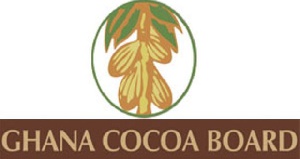 The initiative is to help end subsidies for cocoa farmers in the country
The initiative is to help end subsidies for cocoa farmers in the country
Ghana's cocoa regulator, Ghana Cocoa Board (COCOBOD), will sell as much as GH¢2.5 billion ($556 million) of debt to pay for liabilities and operational costs while pledging to end subsidies for farmers, according to a deputy finance minister.
The debt sale follows an option by COCOBOD to prop up farmer pay with GH¢984 million in the current season, to make good losses of at least GH¢110 million incurred during the previous crop season and also has to deal with legacy debts from an administration that was replaced last year.
The pledge to end subsidies signals a policy shift after the world’s second-biggest cocoa grower ruled out changing producer payments since setting the minimum price at GH¢7,600 per ton in October 2016.
Over the same period, futures contracts in London slumped by more than a third on forecasts of a second consecutive bumper crop in Ghana and neighbouring Ivory Coast, the world’s largest cocoa producers.
Ghana’s cocoa board will sell the debt through bills and longer dated local-currency bonds to meet its obligations for the season through September, Deputy Finance Minister Charles Adu Boahen said this on Tuesday in an interview in the capital, Accra.
The regulator will pay farmers the equivalent of 70% of the freight-on-board price for cocoa from the beginning of the new season in October and will begin a campaign to explain to producers why payments need to correspond with international trends, he said.
Viable entity
“We believe that from next season, when there is no subsidy, the board will make sufficient revenue to pay off its debts,” said Boahen, who also serves as chairman of the regulator’s finance committee.
“The cocoa board is a very viable commercial entity.”
A cocoa debt auction is an option as Ghana has already used about $1.25 billion of a $1.3 billion syndicated loan that it obtained for farmer payments from foreign and local banks in September, Boahen said.
The regulator is targeting a harvest of 850,000 tons this season, of which about 435,000 tons were purchased by Dec. 28, according to people familiar with the matter.
Ghana regularly sells 182-day cocoa bills to shore up its finances. It sold GH¢580.2 million in notes earlier this month at a yield of 20.07 %.